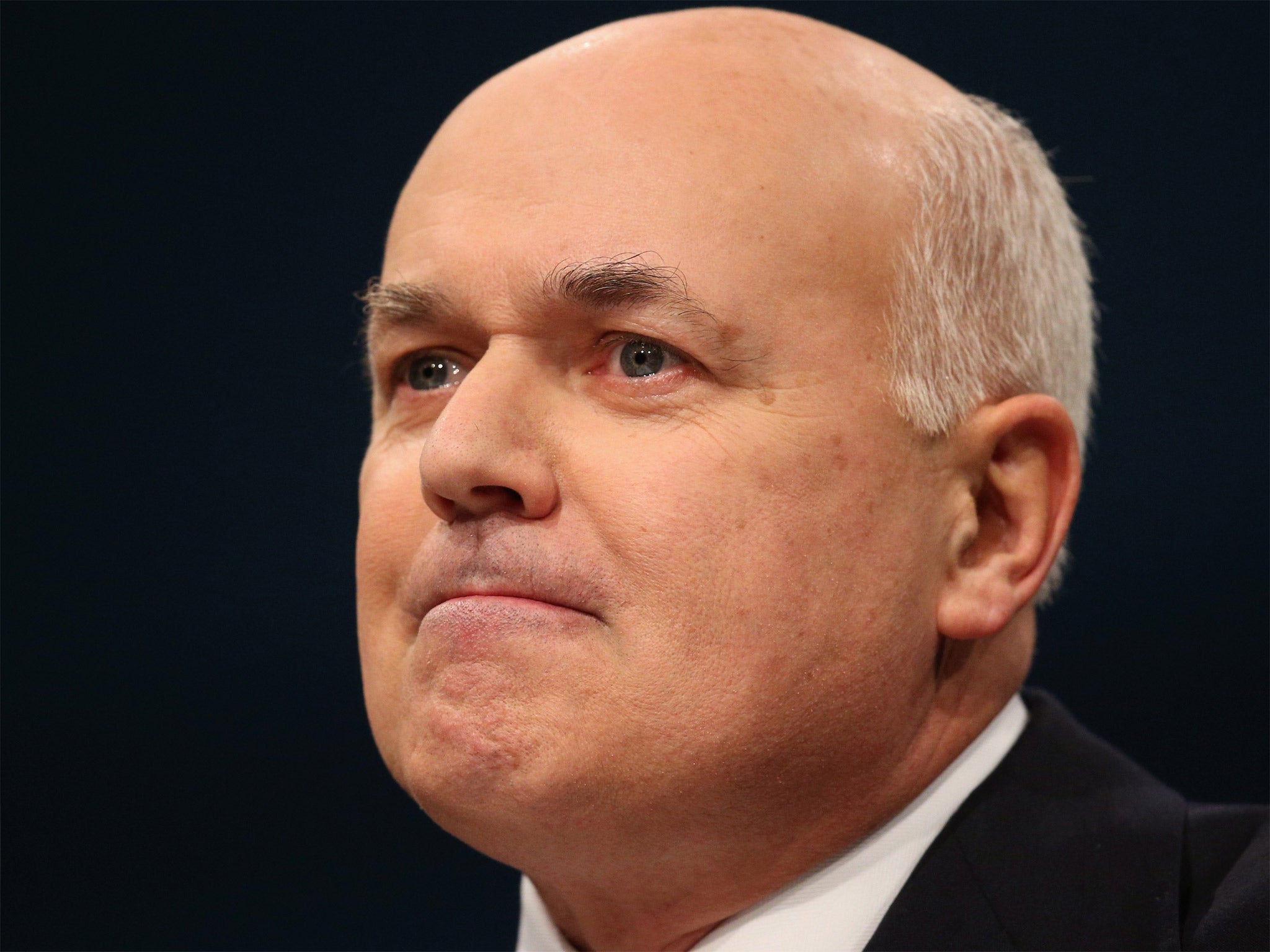Universal Credit is not providing value for money despite IDS' claims
NAO refuses to back Work and Pensions Secretary's claims

Your support helps us to tell the story
From reproductive rights to climate change to Big Tech, The Independent is on the ground when the story is developing. Whether it's investigating the financials of Elon Musk's pro-Trump PAC or producing our latest documentary, 'The A Word', which shines a light on the American women fighting for reproductive rights, we know how important it is to parse out the facts from the messaging.
At such a critical moment in US history, we need reporters on the ground. Your donation allows us to keep sending journalists to speak to both sides of the story.
The Independent is trusted by Americans across the entire political spectrum. And unlike many other quality news outlets, we choose not to lock Americans out of our reporting and analysis with paywalls. We believe quality journalism should be available to everyone, paid for by those who can afford it.
Your support makes all the difference.Iain Duncan Smith has suffered another setback over his flagship universal credit scheme after spending watchdogs rejected his claim that it is providing value for money.
Only hours after the Work and Pensions Secretary predicted that the National Audit Office would confirm that his benefits shake-up was delivering value for taxpayers, the watchdog pointedly declined to do so in a report published today.
The reform, which will merge six benefits including jobseeker’s allowance and housing benefit, has been beset by delays and Treasury resistance. Although Mr Duncan Smith has insisted it is “on time and on budget”, it will not now be fully implemented by the end of 2019 after a two-year delay in transferring tax credit claimants. He is adamant that it will eventually “save” the country £20.7bn by getting people into work and lower spending on benefits.
The Work and Pensions Secretary told the BBC yesterday: “I believe that any future [NAO] reports will show that not only does this produce value for money - right now it’s value for money.”
But in its report, the NAO said: “Such [long-term] benefits do not mean that universal credit will be value for money regardless of how they are implemented and the cost of doing so. In our view, the programme is at too early a stage to determine if the Department [of Work and Pensions] will achieve value for money.”
Margaret Hodge, the Labour MP who chairs the Public Accounts Committee, said: “The DWP’s unacceptably poor management of this programme has wasted time and taxpayers’ money, with a staggering £600m spent in four years. Now the department is throwing good money after bad by introducing a short-term fix with no adequate plan for delivery, insufficient skills and unclear milestones to measure progress against.”
Rachel Reeves, the shadow Work and Pensions Secretary, said: “This shocking report says the benefits of universal credit have fallen by £1.7bn and that value for money can’t be determined.”
The DWP said that by next spring, one in three Jobcentres would be taking claims for the new benefit. A spokesman insisted: “The NAO report recognises that we are reducing risks and making progress. In terms of value for money, when fully in place the economy will benefit by £7bn each year and is set to make 3m families better off on average £177 a month.”
Join our commenting forum
Join thought-provoking conversations, follow other Independent readers and see their replies
Comments